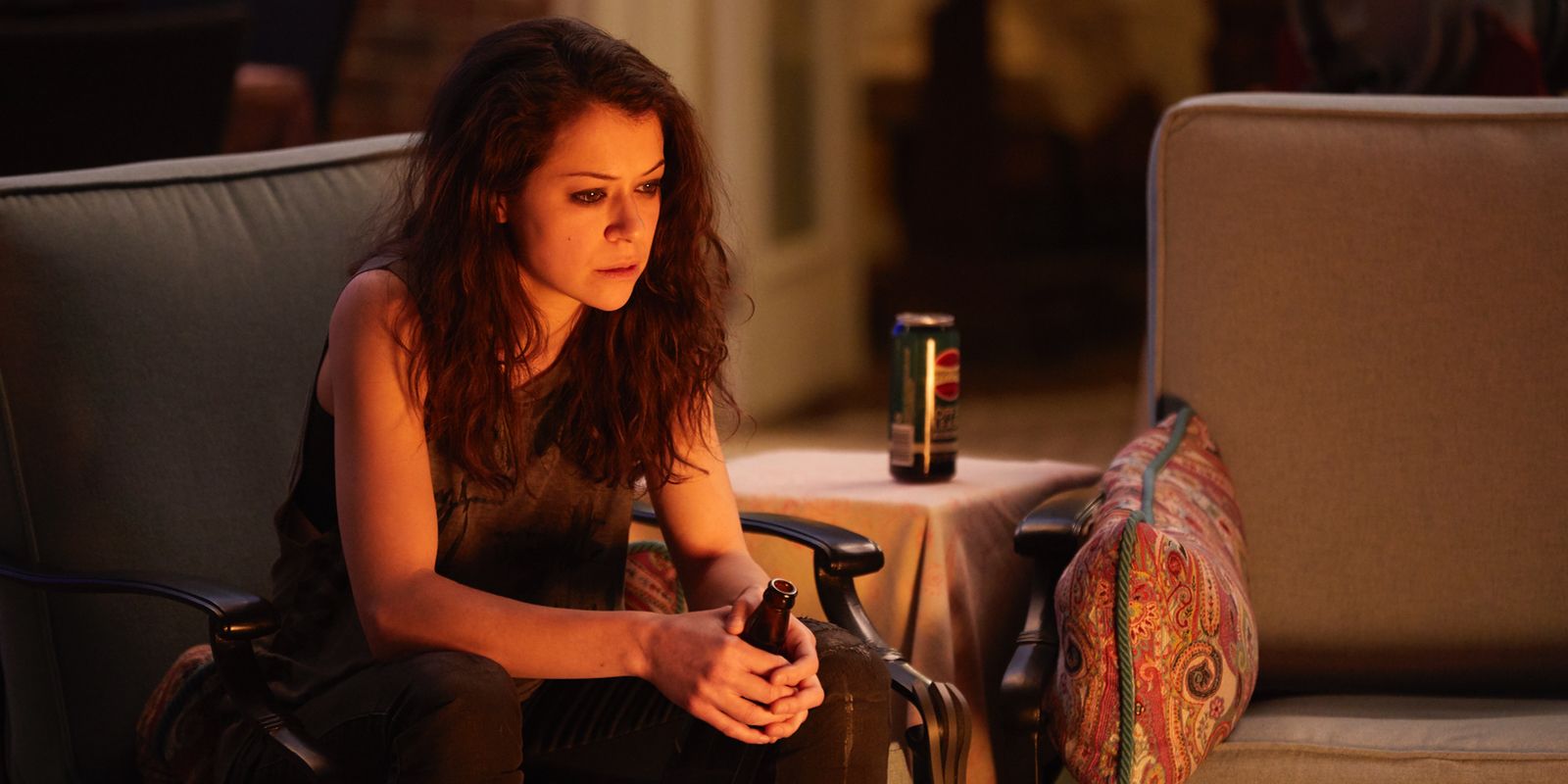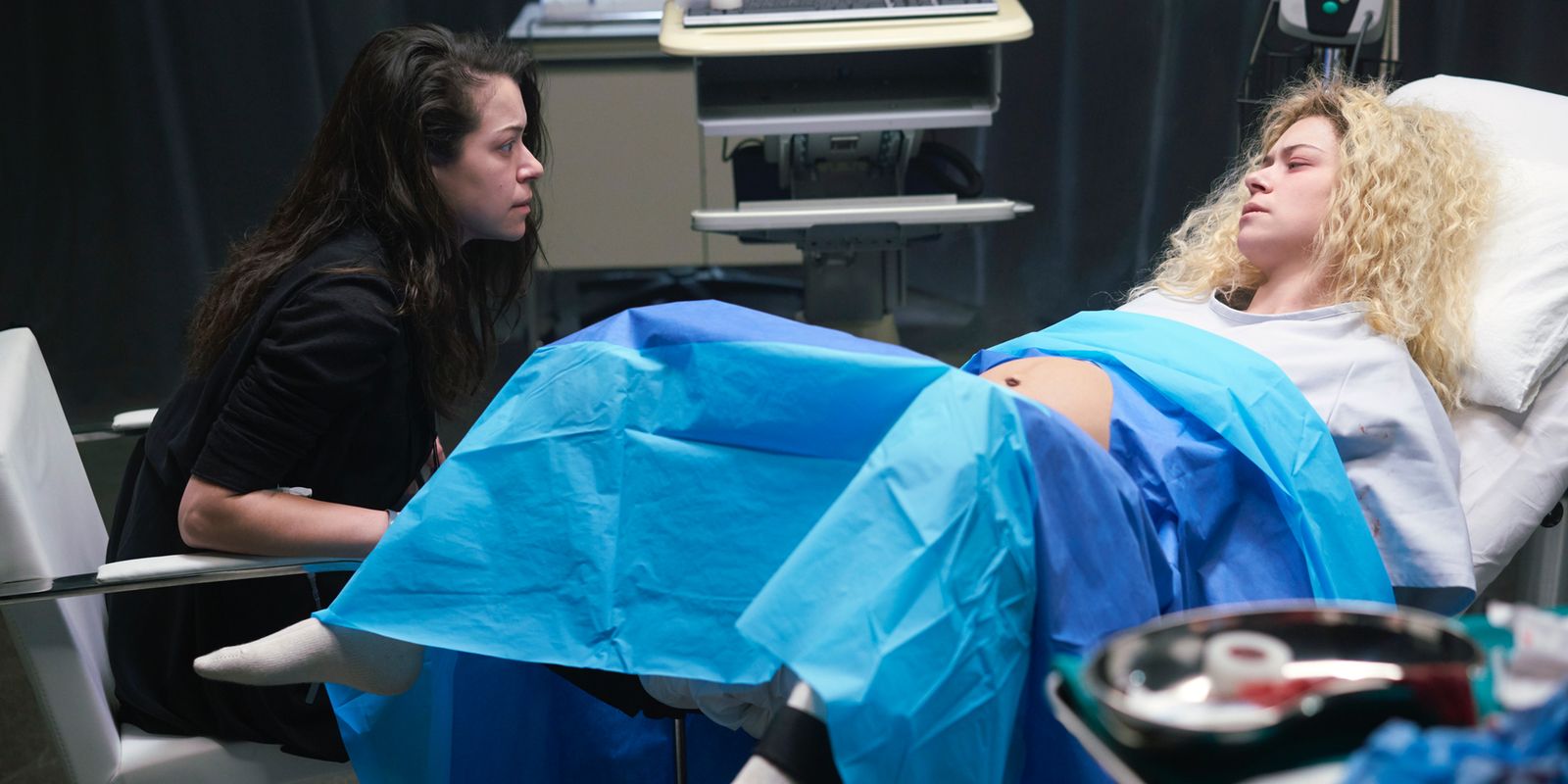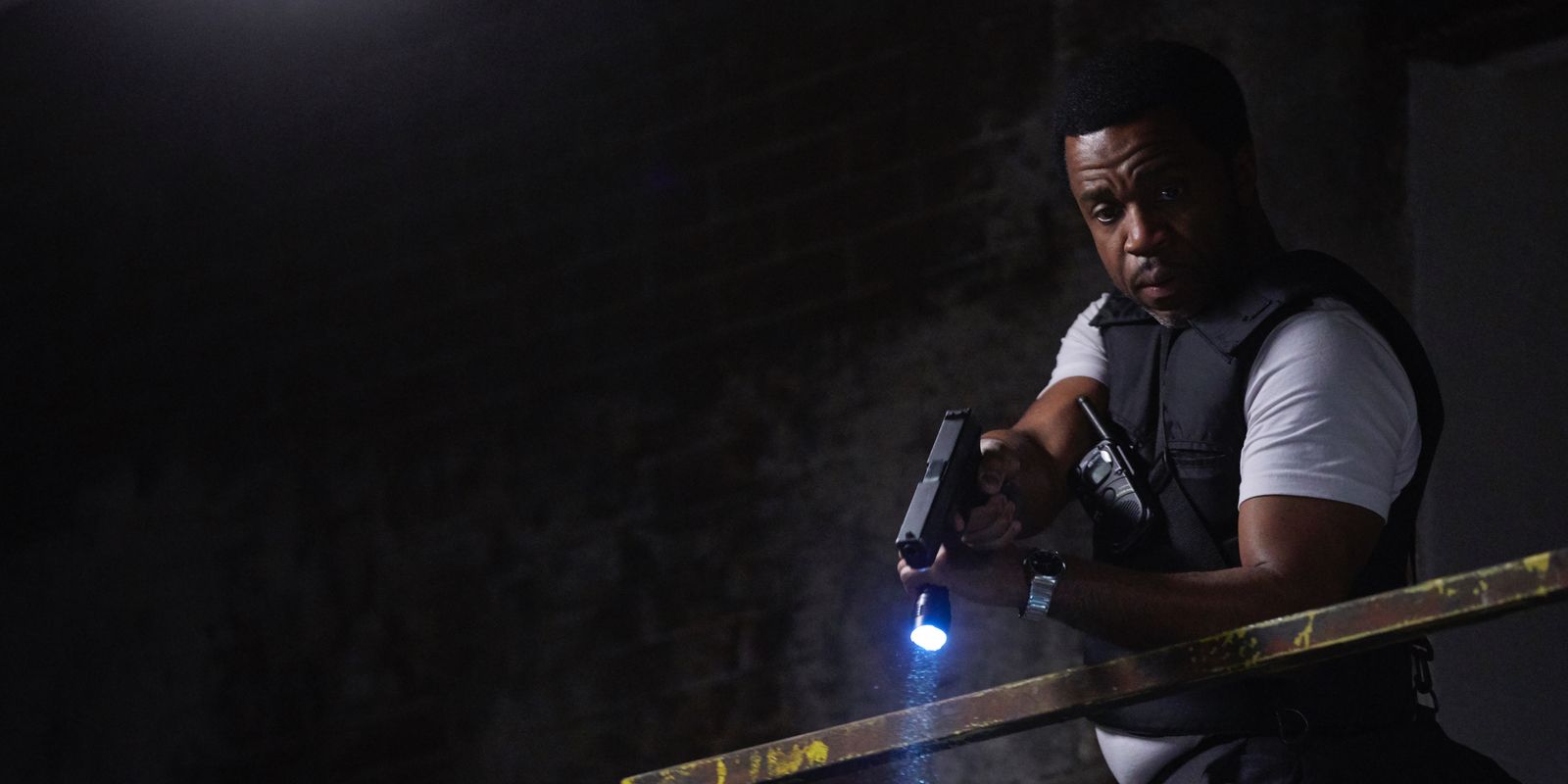Orphan Black comes to a close with an emotional finale that offers a solid conclusion and pays tribute to the series' fundamental themes.
When discussing the end of a television series, it's often tempting to look back and evaluate the series as a whole. That all encompassing scrutiny can sometimes shine a light on everything the creators intended and the themes that were explored over the show's run, and may sometimes do a disservice to the intent of a finale, especially when that final episode has to follow through on the narrative thrust of the entire series and more. It's to the credit of Orphan Black, then, that the finale, 'To Right the Wrongs of Many,' is able to convincingly handle both, delivering not only a resolution to the five-season-long story of Sarah Manning and her "sestras", but also a fittingly affecting coda that offers satisfying closure to a tremendously original story headlined by an equally tremendous string of performances from its star.
Over the course of its five seasons, Orphan Black saw tremendous growth and contraction in its story, its themes, and its audience. After a zeitgeist-y first season, the series underwent an all too familiar creative retrenchment in its sophomore season, as the series dealt with not only its suddenly high profile status, but also the prospect of having to stretch an otherwise small story into something much larger without pulling so hard the whole thing snapped. And although the series reached a narrative nadir earlier than expected, turning the story of the Clone Club, Dyad, Neolution, and eventually P.T. Westmorland in a sometimes-confounding but always entertaining clutter, the final season brought the story back into focus and effectively revitalized the show so that it could go out on a high note.
'To Right the Wrongs of Many' is Orphan Black's way of acknowledging the scope of its story and the series' ability to find and fulfill an intimate portrait of a group of genetically identical women and the circumstances that made them into unique individuals. That's a difficult balance to manage for any series over any amount of time, let alone five seasons and fifty episodes. And while that balance was occasionally hit-or-miss, Orphan Black remained consistently watchable thanks to its remarkable cast – one that, thanks to the peerless Tatiana Maslany, stayed deceptively small right up until the very end. The result was a series finale that struck a fascinating balance between high-stakes science fiction and the more personal drama that made its characters so compelling to begin with.
The structure of the finale is a testament to the planning the Orphan Black writers have done in preparing for the end. With so many threads in need of attention, these last 10 episodes have managed to address Sarah, Cosima, Alison, Helena, and even Rachel in ways that are both surprising and economical. That's especially impressive given the needs of the overarching storyline and the role P.T. Westmorland, Dyad, and the Neolutionists still had to play in the Clone Club saga when season 5 began. Slowly but surely, the series handled each character thread in time, moving toward individual resolutions in a manner that sometimes favored expediency over inventiveness – as was the case with the cure to Cosima's life-threatening affliction – but given the sheer number of storylines that needed to be serviced, expediency isn't necessarily worth getting too worked up about.
Besides, the effort early on to resolve those threads left the finale wide open to deliver (no pun intended) a thrilling first half that saw Sarah, Helena, and Art go to extraordinary lengths against Westmorland, Dr. Coady, and what was left of Dyad at that point to ensure the Ukrainian clone's unborn children were safe. Over the course of five seasons, the folks behind Orphan Black developed a certain skillset with regard to showing a single event from a number of different perspectives, and here they were given one last chance to put those tools to good use. The escape from Dr. Coady – which began in the penultimate episode – retains the same claustrophobic, restrained sensibility as when Helena was shackled in the makeshift delivery room. The writers wisely chose to keep the action confined to the same building where both sides of the conflict had convened until there could be an inevitable resolution.
The result is a taut first half hour that feels, appropriately, more like an extension of 'One Fettered Slave', as first Dr. Coady makes the mistake of getting too close to Helena – who is likely doubly dangerous while in labor – and again when Westmorland discovers all the pharmaceutical grade methamphetamine in the world isn't going to save him from Sarah's lucky shot. The efficiency with which the two Big Bads are dispatched leaves plenty of room for 'To Right the Wrongs of Many' to attach a necessary emotional significance to the birth of Helena's children. Juxtaposing the scene in the makeshift delivery room with flashbacks to Sarah's own delivery of Kira – as assisted by Siobhan – underscores several of the major themes of the series with regard to women's agency and choice and the degree to which they have control over their own bodies.
Wisely, the finale keeps the tension simmering for a short while after Orange and Purple (soon to be Arthur and Donnie) are born. The small time jump allows the finale a chance to skip some unnecessary exposition and get to what really matters: the question of what will become of the Clone Club now that their survival isn't so dependent on one another. Rather than offer a Six Feet Under-style recap of each clone's future whereabouts, 'To Right the Wrongs of Many' gathers them all for a final demonstration of Maslany's immense acting talent and the show's mastery when it comes to handling the technical aspect of one actor playing multiple roles in a scene. But the gathering at Alison and Donnie's house has more to offer than Orphan Black showing off; it's a crucial moment in which the characters come to understand the nature of the support they are meant to offer one another, and how, despite being genetically identical, they are uniquely individual women.
In all, 'To Right the Wrongs of Many' delivered a series finale that stayed true to the show's most important themes, making good on its exploration of women's choice, agency, and individuality. For a series that at times felt as though it had gone off the rails, Orphan Black found itself back on track when it mattered most. Because of the nature of the show, and its multi-faceted performance from Maslany, it's doubtful we'll see the likes of Orphan Black on TV anytime soon. That puts the final episode in a difficult position of having to honor not just the story but also the tremendous effort put forth by its lead actress and the rest of the cast. These actors certainly earned an emotionally fulfilling and thoughtful finale and for the most part, that's what the creators delivered.
Next: Orphan Black The Final Season Premiere Expertly Sets Up The Series’ Endgame
Orphan Black can be streamed in its entirety on the BBC America app.



